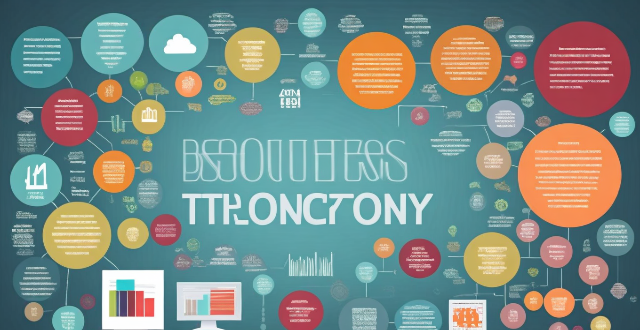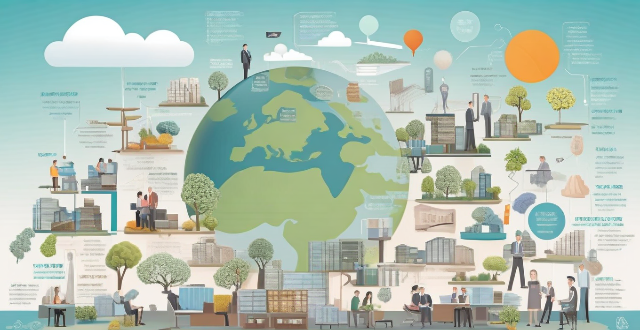World International

What are some examples of successful disability sports organizations or events around the world ?
Disability sports have been gaining popularity and recognition worldwide, with many organizations and events showcasing the talent and determination of athletes with disabilities. Here are some examples of successful disability sports organizations and events around the world: 1. Paralympic Games: An international multi-sport event for athletes with physical and intellectual disabilities, held immediately after the Olympic Games in the same host city. 2. Special Olympics World Games: A global event for athletes with intellectual disabilities, offering competition in various sports such as swimming, athletics, and basketball. 3. International Wheelchair Basketball Federation (IWBF): The governing body for wheelchair basketball worldwide, organizing international competitions and promoting the development of wheelchair basketball across different regions. 4. Cerebral Palsy Football World Cup: A biennial international football tournament for players with cerebral palsy, providing an opportunity for these athletes to showcase their skills and promote awareness about cerebral palsy. 5. International Blind Sports Association (IBSA): Dedicated to promoting sports for visually impaired athletes, organizing world championships and other events in various sports such as goalball, judo, and swimming. 6. World Deaf Volleyball Championships: An international competition for deaf volleyball players, promoting the development of deaf sports and providing a platform for deaf athletes to showcase their talent and compete at the highest level. 7. World Dwarf Games: A multi-sport event specifically designed for individuals with dwarfism, offering a range of sports such as swimming, track and field, and powerlifting, providing opportunities for athletes with dwarfism to compete and showcase their abilities.

In what ways can athletes serve as ambassadors for their countries in international relations ?
Athletes have the power to unite people from different countries and cultures through their performances and achievements. They can serve as ambassadors for their countries in international relations by promoting peace, understanding, and goodwill. Some ways athletes can fulfill this role include participating in international competitions, organizing charity events, learning about other cultures, teaching sports to children abroad, speaking out against injustice, and supporting environmental sustainability. By using their influence and platform, athletes can make a positive impact on the world and inspire others to do the same.

Which country has won the most FIFA World Cup titles ?
The country that has won the most FIFA World Cup titles is Brazil, with a total of five (5) titles. The Brazilian national football team is widely considered one of the most successful in the history of the sport. Other countries that have achieved significant success in the World Cup include Germany, Italy, Argentina, and Uruguay.

What is the role of the World Health Organization (WHO) in promoting global health ?
The World Health Organization (WHO) plays a crucialThe World Health Organization (WHO) plays a crucial by providing leadership, setting norm WHO's work is focused on improving health outcomes worldwide through various activities such as convening stakeholders, establishing international standards for health, generating scientific knowledge to inform policy decisions, providing technical support to countries, and monitoring global health trends.

What are the best websites for international shopping ?
The text provides a summary of the best websites for international shopping, including Amazon, eBay, AliExpress, ASOS, and Farfetch. It highlights the features and benefits of each website, such as global reach, easy shipping, customer reviews, auction-style shopping, buyer protection, affordable prices, diverse product range, direct shipping, fashion-forward clothing, free shipping, wide size range, luxury fashion, authentic products, and global shipping. The text concludes that these websites offer a great selection of products from different countries and provide convenient shipping options for international shoppers, meeting their needs for affordable fashion or luxury items.

What are some popular shopping apps that provide international shipping options ?
The text provides a summary of popular shopping apps that offer international shipping options, including Amazon with its Global Store, Amazon Global, and Prime International Shipping; eBay with its Global Shipping Program and International eBay Sites; AliExpress with Standard Shipping, CaoNiLao Premium Shipping, and DHL Shipping; ASOS with Global Shipping and free returns; and Zalando with International Shipping and partnerships with local postal services.

What are some examples of sports events that have promoted international peace ?
This article discusses the role of sports events in promoting international peace and understanding. It highlights the Olympic Games and the FIFA World Cup as two major sporting events that have brought together athletes from around the world to compete in a spirit of friendship, solidarity, and fair play. The article also mentions other events like the Peace and Sport Forum, the United Nations Office on Sport for Development and Peace (UNOSDP), and the Commonwealth Games, which serve as platforms for cultural exchange and diplomacy between participating countries. Overall, the article emphasizes the importance of using sport as a tool for promoting peace and building bridges between nations.

What policies and international agreements aim to protect biodiversity ?
The text provides an overview of various policies and international agreements that aim to protect biodiversity, including the Convention on Biological Diversity (CBD), the United Nations Framework Convention on Climate Change (UNFCCC), the Ramsar Convention, the International Union for Conservation of Nature (IUCN), the World Wildlife Fund (WWF), the Nagoya Protocol, the Global Environment Facility (GEF), national policies and legislation, and the Great Ape Project. These initiatives are crucial for maintaining ecosystem health and human well-being, but face challenges in implementation and enforcement.

How has technology impacted international cooperation in recent years ?
The text discusses the impact of technology on international cooperation in various sectors such as communication, collaboration tools, access to information, globalization of trade and commerce, and environmental sustainability. Technology has improved communication through instant messaging, social media, and email, enhanced collaboration tools like project management software and video conferencing, increased access to information with open source data and online news sources, globalized trade and commerce through e-commerce platforms and digital payment systems, and promoted environmental sustainability with climate modeling and renewable energy technologies. Overall, technology has had a significant positive impact on international cooperation.

Are there any cashback websites that support international shopping ?
The text provides a list of cashback websites that support international shopping. These websites offer cashback on purchases made at various online stores across the world. Some popular examples include TopCashback, BeFrugal, Rakuten, Mr. Rebates, and Giving Assistant. Each website has its unique features and benefits, such as offering cashback on purchases made at specific retailers or having additional features like browser extensions or mobile apps. Overall, these cashback websites provide an excellent opportunity for international shoppers to save money while shopping online.

What is the role of international organizations in financial regulation ?
International organizations are crucial in financial regulation, promoting stability, cooperation, and coordination among countries. They set global standards, enhance coordination, provide policy advice, facilitate information exchange, and monitor market developments. The Basel Committee on Banking Supervision, International Organization of Securities Commissions, and International Association of Insurance Supervisors develop regulatory standards for banks, securities regulators, and insurance, respectively. The Financial Stability Board coordinates international financial regulation, while the Bank for International Settlements facilitates cooperation among central banks. The World Bank and IMF offer technical assistance and support for financial sector development and reform. The Committee on Payment and Settlement Systems promotes payment system stability, and the Joint Forum of Tax Administrations addresses tax evasion. The Global Financial Stability Report and Early Warning Exercises monitor market developments and emerging risks. Overall, these organizations help ensure financial stability, reduce systemic risks, and foster a more transparent and resilient global financial system.

Can you identify any international sports events that have taken significant steps towards achieving gender parity among competitors ?
The text discusses the growing emphasis on achieving gender parity in sports, highlighting significant steps taken by various international sports events towards this goal. It mentions the Olympics' strides in ensuring equal participation and medal distribution for men and women, FIFA's establishment of the Women's World Cup and increased investment in women's football, tennis Grand Slams offering equal prize money and television coverage for both genders, and the Rugby World Cup's efforts to promote women's rugby and implement gender equality policies. The text concludes that these initiatives demonstrate a commitment to creating a more equitable playing field for all athletes, regardless of gender, acknowledging that there is still work to be done.

Can you provide examples of successful international cooperation initiatives ?
Successful International Cooperation Initiatives International cooperation is a vital aspect of global progress, enabling countries to work together towards common goals. Here are some examples of successful international cooperation initiatives: 1\. The United Nations Framework Convention on Climate Change (UNFCCC) aims to stabilize greenhouse gas concentrations in the atmosphere at a level that prevents dangerous human interference with the climate system. It has been ratified by 197 parties, making it one of the most widely accepted international agreements. 2\. The World Health Organization (WHO) is the directing and coordinating authority on health within the United Nations system. It provides leadership, research, norms and standards, and technical support to countries worldwide. 3\. The International Space Station (ISS) is a joint project among five space agencies: NASA (United States), Roscosmos (Russia), JAXA (Japan), ESA (European Space Agency), and CSA (Canadian Space Agency). It serves as a microgravity and space environment research laboratory. 4\. The Convention on International Trade in Endangered Species (CITES) is an international agreement between governments aimed at ensuring that international trade in wild animals and plants does not threaten their survival. It regulates or bans trade in species listed in its appendices.

How does sports diplomacy contribute to international relations ?
Sports diplomacy is a form of soft power that uses sports events and activities to foster relationships between nations. It contributes to international relations by enhancing mutual understanding, promoting economic cooperation, and promoting peace and security. Sports diplomacy promotes cultural exchange and builds trust between nations. It also attracts investment, creates job opportunities, reduces tensions, and enhances security cooperation. Overall, sports diplomacy plays a crucial role in building stronger relationships between nations.

What are the most popular destinations for international students ?
The United States, the UK, Canada, Australia, Germany, and France are among the most popular destinations for international students due to their renowned universities, high-quality education, diverse cultures, and career opportunities. Each country offers unique experiences and benefits such as historical significance in the UK, multicultural societies in Canada and Australia, affordable tuition fees in Germany, and cultural immersion in France. These destinations provide not only quality education but also a chance to immerse oneself in different cultures, languages, and ways of life, making them highly sought after by international students worldwide.

Can international cooperation help mitigate climate-related conflicts ?
The text discusses how climate change can exacerbate conflicts and the role of international cooperation in mitigating these impacts. It outlines various challenges posed by climate change, such as water scarcity, food insecurity, natural disasters, and economic instability, and how they can lead to conflicts. The text then explores the potential roles of international cooperation, including diplomacy, technology transfer, financial support, education, and capacity building. It also highlights challenges to achieving effective international cooperation, such as political will, economic disparities, and cultural differences. Finally, the text concludes that international cooperation is essential in addressing climate-related conflicts and that collaborative efforts can lead to a more resilient and equitable world.

What is the importance of international cooperation in addressing climate change ?
International cooperation is crucial in addressing the global challenge of climate change. It enables shared responsibility, economic efficiency, political will, global impact, innovation and technology transfer, and strengthening multilateralism. By working together through international organizations and treaties, countries can take decisive action on climate change and create a sustainable future for all.

What is the role of technology in enhancing the international education experience ?
Technology plays a pivotal role in enhancing the international education experience by fostering connectivity, providing access to information, enabling interactive learning experiences, and promoting cultural exchange. With tools like email, video conferencing software, and social media platforms, students can connect and collaborate with peers globally. Online resources such as e-books, databases, and MOOCs offer vast amounts of information previously only accessible through physical means. Interactive learning experiences are made possible through multimedia tools like virtual reality, augmented reality, and gamification. Finally, technology promotes cultural exchange through language exchange platforms, virtual exchange programs, and social media exposure to diverse perspectives. As technological advancements continue, they will undoubtedly further shape the future of international education.

What role do international sports organizations play in fostering global cooperation ?
International sports organizations are crucial for global cooperation, promoting peace, cultural exchange, economic development, health, gender equality, environmental sustainability, and humanitarian aid.

What are the challenges and opportunities for online international education during the COVID-19 pandemic ?
The COVID-19 pandemic has disrupted many aspects of our lives, including education. With schools and universities closed, online international education has become the new norm. However, this shift to online learning comes with its own set of challenges and opportunities. One of the biggest challenges is technical issues, as many students may not have access to reliable internet connections or devices that can support online learning. Another challenge is language barriers, which can lead to feelings of isolation and exclusion from the learning community. Additionally, online learning can lack face-to-face interaction, which is essential for building relationships and fostering a sense of community among students. Despite these challenges, online international education also presents several opportunities. One major opportunity is accessibility, as online education allows students from all over the world to access quality education without having to leave their homes. Another opportunity is flexibility, as online courses often allow students to work at their own pace and on their own schedule. Finally, online international education provides an opportunity for diversity, as students from different backgrounds and cultures can come together in one virtual classroom. In conclusion, while online international education presents several challenges during the COVID-19 pandemic, it also offers numerous opportunities for students around the world. By addressing the challenges and embracing the opportunities, we can make online education a more effective and enjoyable experience for all learners.

Are there any international efforts to harmonize climate change legislation across different countries ?
International efforts are underway to harmonize climate change legislation across different countries, including the United Nations Framework Convention on Climate Change (UNFCCC), International Emissions Trading Association (IETA), Carbon Pricing Leadership Coalition (CPLC), and Global Green Growth Institute (GGGI). These initiatives aim to create a unified approach to addressing the global challenges posed by climate change through regular meetings, national communications, emissions trading standards, carbon pricing policies, and green growth strategies.

What is the role of international cooperation in shaping renewable energy policies ?
The text discusses the importance of international cooperation in developing renewable energy policies worldwide. It highlights three main benefits: sharing knowledge and best practices, accessing financing and investment opportunities, and addressing global challenges such as climate change, air pollution, and energy security. Examples are provided for each benefit, including technical workshops, research collaborations, policy forums, multilateral development bank loans, green bonds, private sector partnerships, climate change agreements, joint research efforts, and energy security initiatives. The conclusion emphasizes that international cooperation is crucial for accelerating the transition to a more sustainable and equitable energy system.

Are there any international laws or treaties related to privacy rights ?
The text discusses several international laws and treaties related to privacy rights, including the European Convention on Human Rights (ECHR), the General Data Protection Regulation (GDPR), the Charter of Fundamental Rights of the European Union (CFR), and the International Covenant on Civil and Political Rights (ICCPR). These documents provide individuals with protection against unlawful interference with their private lives, homes, and communications.

Are there any international standards for carbon credit systems ?
There are several international standards and protocols that govern carbon credit systems, including the Climate Action Reserve (CAR), the International Carbon Reduction and Offset Alliance (ICROA), and regional and national standards such as the European Union Emissions Trading System (EU ETS) and the North American Carbon Programme (NACP). These standards ensure the credibility, transparency, and integrity of carbon offset projects by setting rigorous guidelines for project developers to follow. By adhering to these standards, organizations can demonstrate their commitment to combating climate change and contribute to a more sustainable future.

What role do international organizations play in climate financing ?
International organizations play a crucial role in climate financing by providing funding, technical assistance, and policy guidance to support the transition to a low-carbon economy. Their efforts are focused on mitigating the effects of climate change and adapting to its impacts, with contributions including funding from multilateral development banks and the United Nations Framework Convention on Climate Change, technical assistance from the United Nations Environment Programme and the International Renewable Energy Agency, policy guidance from the International Energy Agency and the Organisation for Economic Co-operation and Development, and collaboration and partnerships through initiatives like the Climate Investment Funds and private sector initiatives.

How can international cooperation aid virus origin tracing efforts ?
The text discusses the importance of international cooperation in virus origin tracing efforts. It outlines various ways in which collaboration can aid this process, including sharing information and data through global databases and real-time reporting systems; pooling resources and expertise by establishing centralized laboratories and training programs; coordinating responses and policy making through global health organizations and international agreements; and building public trust through transparent communication and community engagement. The text emphasizes that successful virus origin tracing requires a multidisciplinary approach and the involvement of experts from different fields. It highlights the need for transparency, openness, and ethical considerations in research activities to ensure cultural sensitivity and community benefits. Overall, the text underscores the significance of international cooperation in unraveling the mysteries of virus origins and preventing future pandemics.

How can international cooperation help address the challenges of climate change and energy security ?
The text discusses the importance of international cooperation in addressing climate change and energy security challenges. It highlights the benefits of sharing knowledge, joint research and development, implementing global agreements, and access to financing and investment. The text also suggests strategies for promoting clean energy technologies, strengthening policy frameworks, enhancing capacity building, and facilitating trade and investment. Overall, the text emphasizes that international cooperation is essential for creating a sustainable future.

What is the role of international sports organizations in regulating and standardizing sports in a global context ?
The Role of International Sports Organizations in Regulating and Standardizing Sports Globally International sports organizations are crucial for regulating and standardizing sports globally. They develop rules, enforce anti-doping policies, protect athletes' rights, and promote ethical behavior. These organizations ensure fair competition, create a safe environment for athletes, and maintain the integrity of sports worldwide.

What policies and international agreements aim to address the dual crises of climate change and biodiversity loss ?
The text discusses various policies and international agreements aimed at addressing climate change and biodiversity loss. These include the Paris Agreement, Convention on Biological Diversity (CBD), Aichi Biodiversity Targets, United Nations Sustainable Development Goals (SDGs), Ramsar Convention on Wetlands, and International Union for Conservation of Nature (IUCN) Red List of Threatened Species. The text emphasizes the interconnectedness of these issues and the need for collaborative efforts to achieve a sustainable future.

How can universities improve their support services for international students ?
Universities can enhance support for international students by offering cultural orientation, language training, academic tutoring, writing assistance, social integration activities, career development, and internship opportunities.